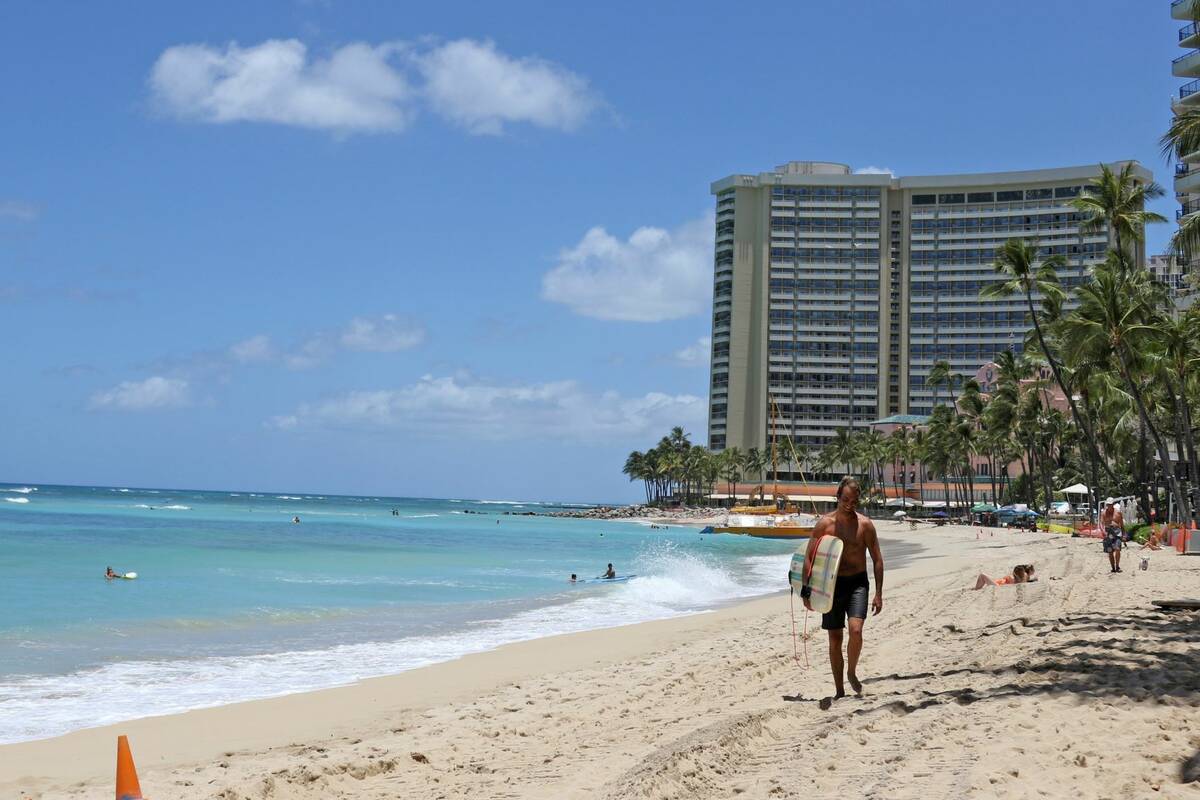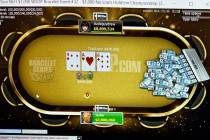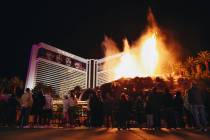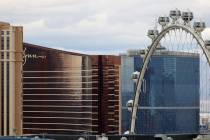Hawaii aiming for big bucks with its sports-wagering proposal
A state lawmaker in Hawaii has introduced legislation there to offer sports wagering to residents and tourists of the islands.
But Rep. John Mizuno, D-Honolulu, may be tilting at windmills in his bid to bring Hawaii its first form of legalized gambling, considering others have tried and failed to do the same thing.
If successful, the bill by Mizuno, who has served in the Legislature since 2006 and last month was voted vice-speaker of the House, would leave Utah as the only state without any form of legalized gambling. The legislation proposed last month got the industry’s attention with what would be the highest gaming tax rate on any sports wagering in the United States, 55 percent. By comparison, Nevada taxes all gaming at a maximum 6.75 percent.
Under terms of the bill, the state would establish the Online Sports Wagering Corp., and tax revenue would be deposited into the sports wagering special fund. The law, which would take effect July 1 if passed, also requires licensing fees imposed on sportsbook providers, but that amount is left blank in the legislation.
The wording in the legislation indicates that players — not sportsbooks — would be assessed the tax. In most jurisdictions, revenue generated by sportsbook vendors as gross gaming revenue is taxed.
But Mizuno himself admits that the bill drafted is “an opening salvo” that could be modified before it becomes law. He said he modeled his bill after legislation in New York, where a 50 percent tax was imposed when it took effect in January.
“What we did was copycat New York’s law,” Mizuno told SportsHandle, a daily online internet publication following the sports wagering industry. “We wanted to follow New York but go with a higher tax. We said, ‘Hey New York got it passed, so let’s do what they did.’ That was my request for the bill drafters.”
Mizuno told the publication that vendors, not players, would be taxed, though the wording in the legislation says, “There shall be levied, assessed, and collected a tax of 55 percent on all winnings paid out to any person by a sports wagering provider.”
Imagine the disappointment of hitting a six-team parlay for $100,000 and seeing the state of Hawaii take $55,000 of it when a bettor with the same wager in Nevada would collect the whole $100,000.
Chris Grove, who oversees the sports-betting practice as a gaming industry analyst for Eilers &Krejcik Gaming, noted the confusion.
“There’s still some ambiguity there, and I think that’s what’s driving the confusion,” Grove said. “But you know a lot of times with bills at this stage, it’s not uncommon, especially if it’s a bill that’s generated by the Legislature as opposed to stakeholders bringing their idea of what a bill ought to look like to the table first and then working with legislators.”
Grove said he wasn’t surprised by the proposal, noting that it’s bound to be a new attraction for tourists.
“Hawaii is always probably going to take some of the most novel approaches to regulated gambling given the lack of history with regulated gambling in the state,” he said. “It’s no surprise that Hawaii is approaching this issue from a markedly different angle than the typical U.S. state.”
Grove said modeling the legislation off New York’s system was predictable given the state’s early success in generating revenue.
In just three weeks, New York’s online sports betting is on the verge of shattering the national monthly record for sports betting handle — the amount wagered on games and propositions — of $1.3 billion set in New Jersey in October.
PlayUSA, which monitors sports wagering nationwide, projects that New York will challenge Nevada for the highest amount bet on Super Bowl LVI on Sunday. PlayUSA analyst Eric Ramsey expects Nevada to produce the largest Super Bowl handle at $175 million with New York projected to take $160 million in bets. New Jersey, which is expected to lose some of its wagers to New York, is projected at $130 million by Ramsey.
PlayUSA says Nevada holds the current record for sports betting handle during the Super Bowl with $158.6 million wagered in the state, set in 2018 when the Philadelphia Eagles upset the New England Patriots 41-33 in Super Bowl LII.
Local sportsbook operators have never been too worried about measuring up against other jurisdictions, knowing that people will continue to come to Las Vegas to enjoy all of the other amenities it offers besides taking sports bets.
While Hawaii has New York dreams for raising tax revenue, one big question will be whether Hawaii will be able to attract sports betting vendors to provide sportsbooks and online wagering support.
One logical potential choice: Las Vegas-based Boyd Gaming Corp. Boyd has mastered the marketing pipeline between the islands and downtown Las Vegas with years of experience attracting Hawaiians to “the ninth island,” which is what they call Las Vegas.
When asked about the prospects of shipping some gaming business to Hawaii as a result of Mizuno’s proposed legislation, a spokesman for Boyd declined comment.
Grove is convinced that Hawaii would have no problem finding a sportsbook provider, even with the ambiguous sky-high tax rate.
“I’m sure there’s someone,” he said. “You certainly have other examples of very high tax rates for regulated gambling in the U.S. from the consumer perspective. If you think about it, that’s effectively what the lottery is. It’s not as if these sorts of structures are completely unfamiliar. They’re just pretty novel when it comes to thinking about sports betting.”
Contact Richard N. Velotta at rvelotta@reviewjournal.com or 702-477-3893. Follow @RickVelotta on Twitter.























